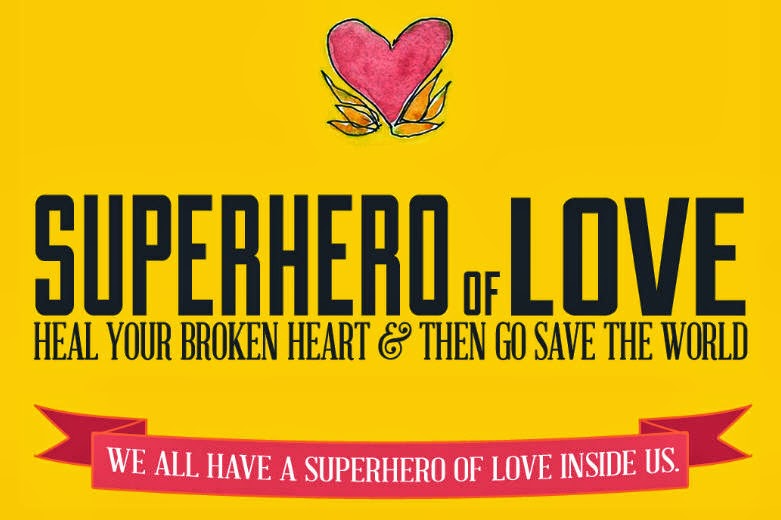A beautiful man I once knew committed suicide recently. He had been the boyfriend of a dear friend. I used to love watching them love one another, how they were so easy and gentle with
each other, how much they truly delighted in each other’s company. He had a smile that could light up a room,
and hers often lit up in reply.
Most touched by suicide are thrown into an endless round of
mental acrobatics to understand it, everyone hoping to gain some tool or
knowledge that might help with another loved one in the future. But no two cases are ever the same, are they?
This man was, in fact, doing all the right things to address his depression,
hitting all the therapeutic marks. So, then what? Where does the mental acrobat jump now?
Ironically, since getting this news I’ve been embroiled in
researching happiness as I prepare myself to interview an expert on the
subject. I fell down the rabbit hole of
TED Talks on the topic of happiness, which included presentations by many who,
not surprisingly, have done extensive research on depression, including one by
Dr. Nancy Etcoff (Nancy Etcoff TED Talk on Happiness) .
The year of her talk was 2004. She said that suicides actually outnumbered
homicides in the United States at that time.
I was shocked by that statistic and thought it must be different
now. It’s not. Suicide is the 10th top cause of death,
homicide is 15th. Our friend was most at
risk to suicide. White males accounted for 7 of 10 suicides in 2014, with
middle aged white men having the highest rates of all. (CDC Suicide Data)
Equally as troubling, particularly since this particular
statistic’s moment of fruition is now imminent, Dr. Etcoff said that the World
Health Organization claimed that depression would be the second largest cause
of disability by the year 2020. I
personally know a lot of people battling depression, some also dealing with
addiction that was sparked by trying to self-medicate for either emotional or
chronic physical pain.
We all know someone who has an opioid addiction. Thank you, Prince, for bringing it front and
center. I wish we hadn’t lost you to have it so.
I know several people who are dealing with opioids, many of
them not admitting an addiction, several fighting valiantly to face the
pain. But the allowing, acknowledging,
and facing pain head on are all skills most of us don’t have. I would rather look the other way myself.
I think we haven’t cracked the code on depression or
addiction because we haven’t cracked the code on handling pain or -- as my
Shaman friend, Carol Woodliff refers to it --
“holding pain” for each other in a way that allows for true
healing.
I know a few sets of parents whose kids are addicted to
drugs who just want them to handle their addiction, get better and return to
the way they once were. I know other
parents who are in the trenches attending Al-Anon helping their kids, husbands,
siblings to hold that pain, and bravely, vulnerably delving into their own,
causing transformation for their entire families.
Your pain touches the pain in me. My pain touches yours. If we can help each other hold and bear
witness to the pain, we might be able to better meet the varying needs of people
battling depression, anxiety and addiction.
There isn’t one code to crack, but there is certainly a systemic failure
in our society to process, or even allow, pain.
We want pain to be put out like a fire, quickly,
expediently, with little regard for the sparks and dry kindling that gave it
life. I have to remind myself to look at
what sparked the fire and make myself dive in even when I don’t want to. I am working on shifting my judgment of
pain. I think we need a seismic societal
shift around talking about pain but it has to start with me working on my own
instinct to run from my own or others’ pain.
Instead of seeing a red flag I’m trying to look at the pain
as a white flag as if my highest self (which wants to be fully expressed,
unthwarted) is signaling, “I give up, let’s look at this pain together and heal
these wounds….and I promise good stuff is ahead if we do.”
I’m not saying people who commit suicide aren’t doing their
damndest, or that they don’t see the white flag themselves. Nor am I saying that our friend’s support
system wasn’t doing all they could do, or that the friends and families of
addicts aren’t doing all they can do.
I’m just noticing that we aren’t giving ourselves a lot of openings for
healing pain and increasing our happiness quotient, or bringing suicide off
that list to top death causes, if we have an allergy to pain or people who are
in pain. In honor of those we have lost,
I’m trying to deal with my own instinct to push it away, and not leave my pain
or the pain of others in the cold.
How can you just leave me standing?
Alone in a world that's so cold?
When Doves Cry, Prince
